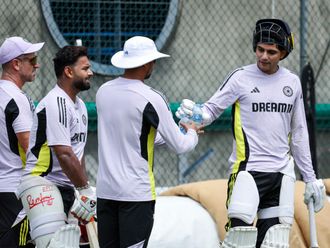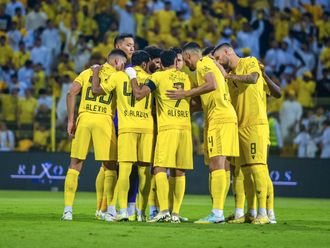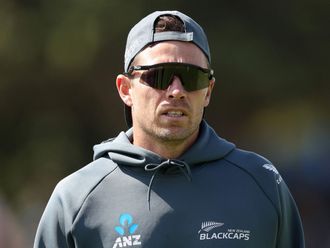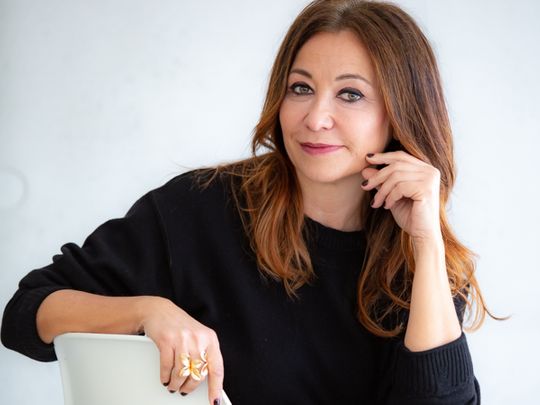
Dubai: While Magda Pozzo enjoys the sights of the Dubai Expo, it’s clear her mind is elsewhere. As one of the decision makers in the Udinese Group, she has a huge job on her hands. She is the marketing strategic coordinator of Udinese in Italy’s Serie A and Watford in the English Premier League.
They are hardly the biggest clubs in football, but that makes the job harder. She has to try to keep them relevant in a sport that is dominated by the likes of Juventus, AC Milan, Manchester United, Liverpool... and men. Football has made changes but is still a male-dominated game - will that ever change, I ask? "I discovered that showing competence and proving knowledge in a sector connected to the club’s life guarantees lots of new opportunities for women," says Pozzo, daughter of Watford and Udinese owner Gianpaolo Pozzo. The Pozzo family has owned Udinese since 1986 and Watford since 2012 as the only group in Europe to have been in control of more than one club in top five leagues at the same time.
Complete equality
"For sure we have a long way to go before there is complete equality," she adds. "But I think that the influence of women executives is increasing. We have to fight any prejudice that can exist in some areas of football about women’s capabilities. Fighting against sexism and racism is part of it. It’s a cultural revolution and as all revolutions need time to show effects. But I think we’re moving in the right direction: football is for everybody with no sex and race distinction."
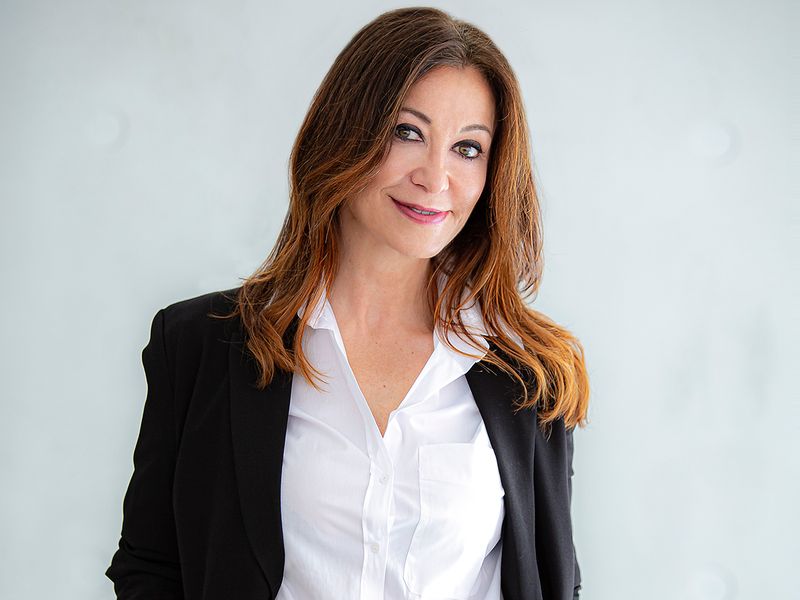
Udinese and Watford may not be competing at the top end of their respective leagues, but she is finding ways to help reshape their commercial strategy in a bid to keep them alive and kicking. Udinese has a distinct advantage over many of their Italian rivals because the club from Friuli Venezia Giulia is one of only four in Serie A to privately own its own stadium, the Stadio Friuli - known for sponsorship reasons as Dacia Arena. And this allows the club to tap into a world of opportunities. "To have a privately owned stadium is of course an opportunity for us to have high standards in terms of infrastructure, comfort and services for our fans, which unfortunately are not common in Italy," she says. "Udinese’s stadium is appreciated all over Europe which is why it hosted the Final of 2019 UEFA Under-21 Championship. We have a 365-days-per-year strategy to utilize our stadium for a variety of events and meeting activities to drive commercial revenue for B2B customers. Our idea is that the stadium shouldn’t just be active on match days. It should be open 365 days a year and it is key that the club focuses on ideas and projects that are not related to only the actual games."
Owning a stadium gives a club an advantage by allowing them to open new horizons for commercial partnerships and projects and the Dacia Arena is an example of what a club like Udinese must do these days to compete with the elite of football. She continues, "We are able to create many more opportunities besides football. In our plan, we want to build new commercial areas, restaurants, gym, swimming pool and a medical center at Dacia Arena so in this way, we hope soon, the stadium will be crucial for the community throughout the year."
We are living in a time where bigger is better and as a result there are countless football clubs all over the world that are planning to build larger stadiums to accommodate more fans and naturally make more money from ticket sales etc but oddly, after a three-year reconstruction of the Stadio Friuli - which reopened in 2016 - the capacity was reduced from 42,000 to 25,000. Magda explains why. "We studied this topic extensively and we feel it is important to have a stadium that is aligned with the inhabitants of Udine. We went in this direction analyzing the previous average of spectators in the old stadium and we thought that a new concept of modern stadium, for the first time in Italy, with no barriers and the fans close to the pitch would have helped us so much to create a great atmosphere."
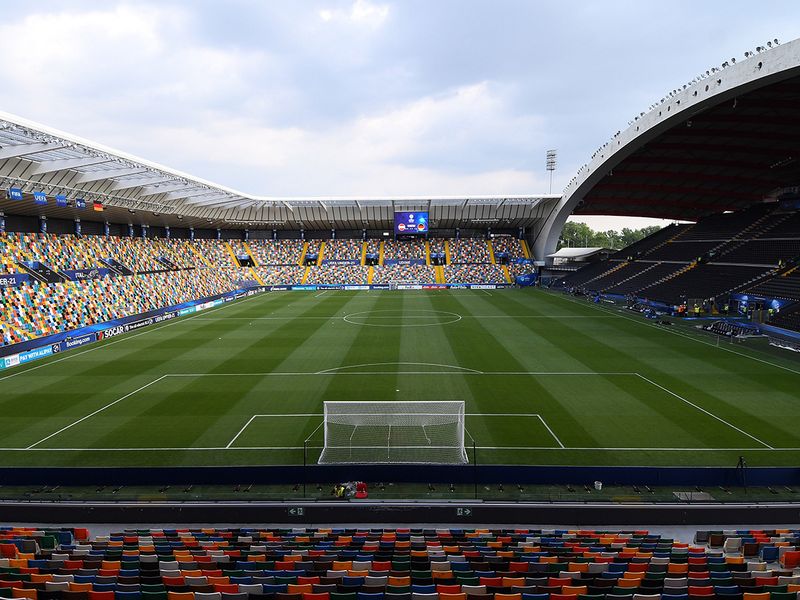
Interestingly, this philosophy avoids the increase of ticket prices and helps the average fan by keeping prices affordable. It also ensures the stadium is always full to capacity and this generates an exceptional atmosphere which can help the team perform on the pitch.
She moves on to the importance of naming rights of a football stadium and the revenue this step alone can bring to a club. But this is something fans truly dislike. Nothing annoys them more than the corporate naming of their hallowed football grounds. They feel the dignity and history of the club is lost when taking this route and don’t want the name of an obscure betting firm or insurance company emblazoned across the place they call home. Watford’s iconic Vicarage Road stadium is approaching its centenary year but there are plans in place to rename the old ground and for fans it’s a bitter pill to swallow, but in the modern game, a necessary one. "It is important on the financial aspect but mostly we want to create partnerships and synergies with partners to improve their brand. And that happened for us with Dacia, starting a new era in football and developing our commercial relations," says Pozzo. "Among other things, with Watford, I am promoting synergies in the interests of the sponsors of the two clubs, which have different target markets. In Italy, we were the first to sponsor the name of the stadium, and I want to do the same with Watford."
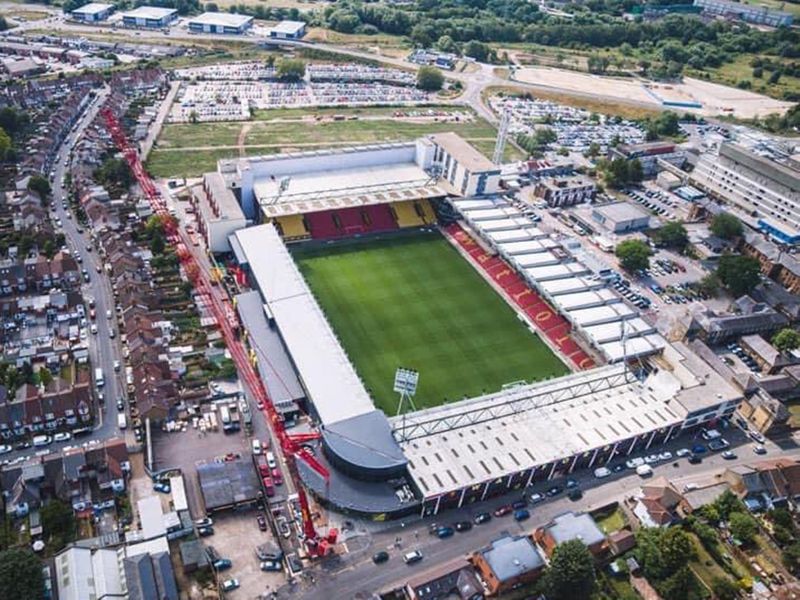
Not just a football venue
Udinese’s sponsorship deal with Dacia – the oldest partnership for a main sponsor in Italian football lasting from 13 years – makes the stadium more than a venue for just football. Dacia dealer’s meeting was hosted at the stadium in October with more than 100 Italian dealers and European managers coming to Udine for the big meeting. And on that day for the first time ever Dacia unveiled a full electric Sandero prototype that will be out in 2025. More events such as this are planned while Magda’s biggest ambition right now is to turn the Dacia Arena into a 100% eco-friendly stadium. But how does she plan on doing this? "We already started a few years ago in cooperation with our partners," she says. "Thanks to a partnership with Bluenergy, our energy partner and back-of-jersey sponsor, for some time now we have been working on our energy transition and Dacia Arena has become one of the first European stadiums to have zero environmental impact. Bluenergy provides energy from renewable sources and compensates gas emissions for our stadium. This means our consumption is CO₂ free - in the last year, 1,530.14 tonnes of CO₂ have been saved."
She makes it clear how important it is for a stadium to be more than just a match day place. "We cannot be always linked to the on pitch results, we need to engage the fans, create the show and there is no show without modern stadia. Obviously they have to know that the stadium is always open, they can visit it, go every day to the store or maybe eat there in a restaurant."
But can Udinese – which has played an impressive 27 consecutive seasons in Serie A – become a big club? Magda believes so and has several ways of expanding the fan base. "We are investing a lot in our digital transformation. Social media has become essential in the overall strategy of a club, not only to keep up the enthusiasm of the local supporters, but a great means to engage with fans around the world. I think we have to invest in digitalization and sustainability and learning from our US colleagues to make the fan’s experience unique, a concept that is still quite disregarded in Italy."
Coronavirus pandemic
Also helping matters on the growth front is the new DAZN broadcast deal which will no doubt assist clubs such as Udinese but it could also revive Serie A as one of the top leagues in Europe. "The agreement with DAZN is a great result from a financial standpoint, arriving amid a broad crisis and going against the trend of other European leagues. Watching football on this kind of platform is the future and I think is going to be a great help for Udinese and Serie A." But she says they cannot rely on TV rights alone. "It is very important for regional clubs to be flexible, creative and differentiate in other areas rather than football. In the sponsorship area, smaller clubs can be successful applying flexible strategies to niche markets. Being creative and thinking outside of the box are really important in order to have better ideas."
Like with other businesses, the coronavirus pandemic affected everything Udinese and Watford did but Magda says they never gave up. "As everybody did, we also had difficult times, missing our fans and our partners but we fought giving them always the maximum support we could. It was a time when we didn’t stop thinking of new innovative projects getting ready to restart stronger than ever before like we are doing. For sure it was a really sad moment especially for all the activities and issues connected to Dacia Arena, but now we look forward to a great future full of new great ideas."


